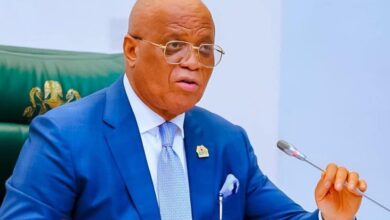Community-based youth training centres cry for help

Community-based youth training centres in the country have appealed to government for renewed investment to unlock the potentials of thousands of young people, especially those from underserved communities.
The General Secretary of Future Leaders Organisation (FLO), Mr Isaac Adjetey, who made the appeal, highlighted several longstanding challenges faced by youth training centres in Ghana.
Some of the challenges he enumerated include limited infrastructure, insufficient funding, and the absence of formal certification systems, despite rising demand for skills in areas such as vocational training, digital literacy, and coding.
Mr Adjetey was speaking during a visit to FLO by the Director of Youth Development and Empowerment, Mr Mohammed Saani Adams, at Agbogboloshie, a suburb in Accra.
The visit forms part of a nationwide tour by the Ministry to assess youth-led initiatives that align with the government’s job creation and empowerment strategy.
“We are not profit-driven. Our model is built on social impact, and though we started with support from GNPC during the revolution era, funding has declined over the years,” Mr Adjetey explained.
He noted that the newly acquired bread-making and grain processing equipment had already helped many trainees establish small businesses in their communities.
Mr Adjetey also revealed plans to expand FLO’s operations to five additional regions, improve facilities, and enhance the overall learning experience for both students and instructors.
Speaking on behalf of the Minister, Mr George Opare Addo, Mr Adams said the Ministry of Youth, Development and Empowerment would work to transform community-based youth training centres nationwide into fully equipped hubs of innovation and employability within the next three years.
He commended FLO’s unique model of youth empowerment, describing it as a beacon of sustainable innovation.
He particularly praised the centre’s use of recycled materials, including metal scrap, to support hands-on vocational training.
“The Ministry sees this as a critical partner in addressing youth unemployment. We will work hand in hand to ensure it becomes a national training reference point,” he stated.
During the visit, Mr Adams toured the centre’s various departments, including a mechanical workshop, a technology laboratory, and a newly established food processing unit.
He observed demonstrations of a locally fabricated grain processor and a bread-making machine, both aimed at promoting food entrepreneurship among young people.
He noted that such equipment plays a key role in bridging the gap between theory and practice, especially in agriculture and agro-processing—areas identified as central to the government’s employment agenda.
The Ministry further indicated its intention to recommend the centre for inclusion in the National Apprenticeship Programme and the Ajumaura Entrepreneurship Initiative—two flagship components of the President’s youth development framework.
Mr Adams also proposed the formation of a technical committee to facilitate strategic collaboration, resource mobilisation, and access to international development funding.
“With over 50 per cent of Ghana’s population under 35, empowering youth today is not an option—it is the only path to a sustainable and self-reliant future,” he said.
BY RAYMOND APPIAH-AMPONSAH & EUGENE AMPIAW
🔗 Follow Ghanaian Times WhatsApp Channel today. https://whatsapp.com/channel/0029VbAjG7g3gvWajUAEX12Q
🌍 Trusted News. Real Stories. Anytime, Anywhere.
✅ Join our WhatsApp Channel now! https://whatsapp.com/channel/0029VbAjG7g3gvWajUAEX12Q






